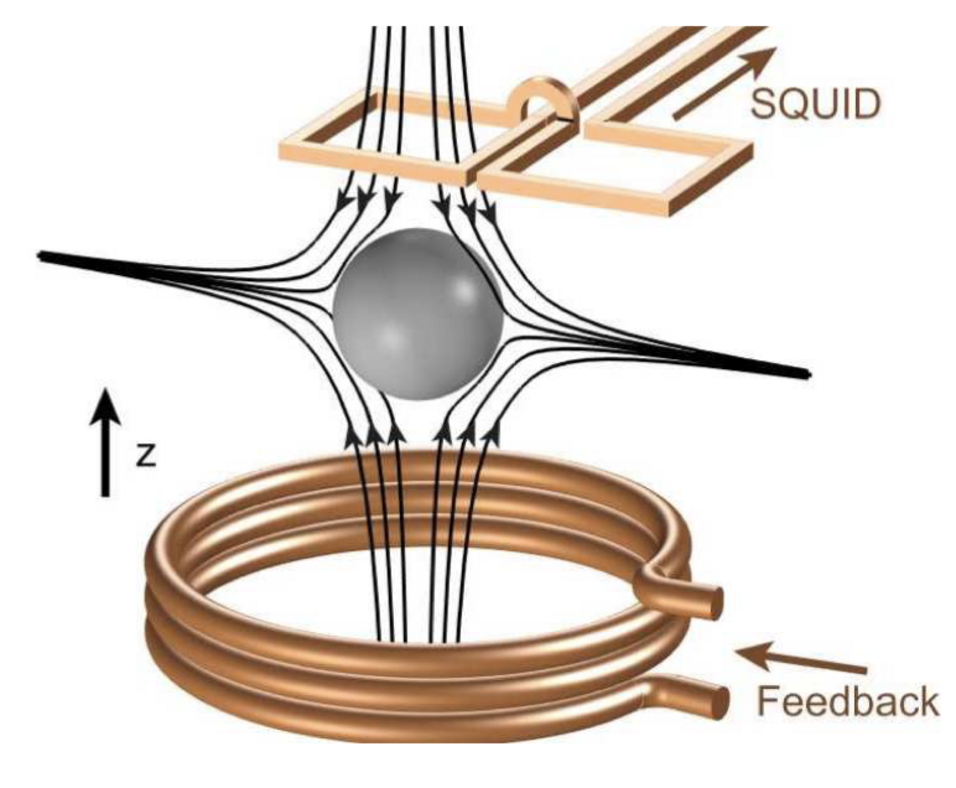Our superconducting spheres are commercial 100 micrometer diameter solder balls made of a 90-10 lead-tin alloy, which is a type-II superconductor with a critical temperature of approximately 7K. The whole experiment is mounted on a home-made triple-pendulum vibration isolation stage and housed in a dilution refrigerator with a loaded base temperature of 15mK. Levitation at base temperature is achieved in the magnetic field generated by a pair of superconducting coils in anti-Helmholtz configuration. Readout is obtained by inductive coupling to a superconducting quantum interference device (SQUID) via a planar Niobium thin film gradiometric pickup coil positioned approximately 400μm above the trap center. The particle motion induces a current in the pickup loop, which is detected by the SQUID. Ringdown measurements show quality factors up to 2e7, corresponding to dissipation rates of 50 micro-Hz and likely limited by flux creep inside the particle. Using an additional coil 1mm below the particle we also demonstrate 3D magnetic feedback control of the particle motion by processing the SQUID signal in real time on an FPGA and applying a feedback current. The cryogenic vibration isolation suppresses environmental vibrations by approximately seven orders of magnitude at the trap frequency of around 200 Hz (at trap coil currents of around 2 A), making readout noise of the particle motion at 1nm/sqrt(Hz) the dominant limiting factor in the current experiment. Future improvements will resolve the thermal noise limit at 15mK and may enable motional control in the quantum regime. The combination of low temperature, large mass and high quality factor as well as adjustable resonance frequencies provides a promising platform for testing quantum physics in previously unexplored regimes with high mass and long coherence times.
Publication in Physical Review Letters:
Joachim Hofer, Rudolf Gross, Gerard Higgins, Hans Huebl, Oliver F. Kieler, Reinhold Kleiner, Dieter Koelle, Philip Schmidt, Joshua A. Slater, Michael Trupke, Kevin Uhl, Thomas Weimann, Witlef Wieczorek, Markus Aspelmeyer
“High-Q Magnetic Levitation and Control of Superconducting Microspheres at Millikelvin Temperatures”

